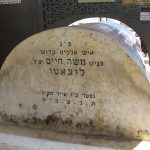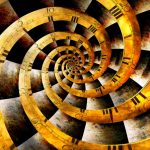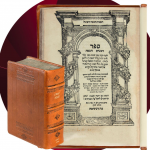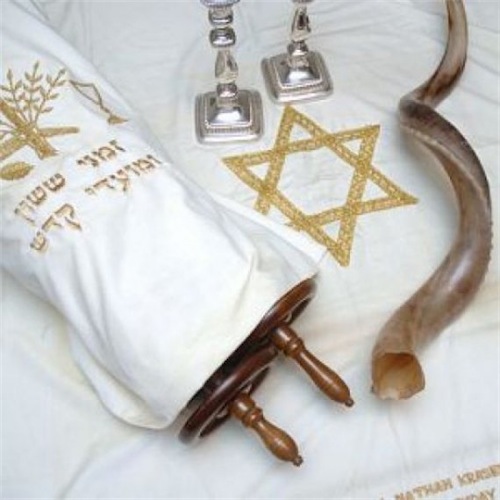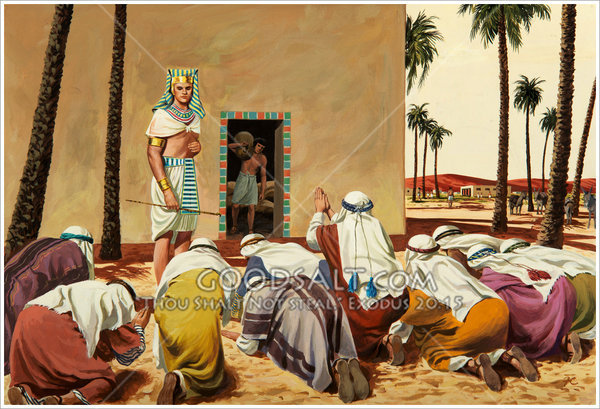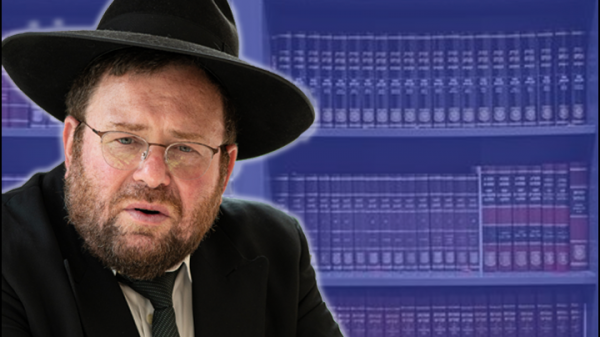Click here to download PDF
Speech and Purity
The Parsha opens (21:1):”Hashem told Moshe: “Emor”-Say to the kohanim the children of Ahron and you shall say to them that they should not become impure from contact with a dead body….” the Midrash Rabbah is fascinated by the term “Emor” (say) and uses it as a springboard to discuss ‘speech’ in general, the importance of clean speech, and the terrible evils of speaking lashon Hara. Why is it that the Midrash sees fit to give a discourse on ‘speech’ by the prohibition of kohanim becoming defiled by contact with the Dead? This verb could be found throughout the Torah!
Death is no excuse
The very first midrash in this week’s Parsha reads as follows: “Say on to the Kohanim the children of Ahron….Rabbi Tanchum the son of Rabbi Chanilai opened [the discussion of this Parsha with the Pasuk] “The Sayings of Hashem are pure Sayings (Tehillim 12:7)” – Sayings of Hashem are pure sayings [implying that] the sayings of a flesh and blood or not pure sayings. It is the way of the world that when a king of flesh and blood comes into a province all the citizens of the province praise him. He enjoys their praise and he says to them: “tomorrow I will build you bath houses, tomorrow I will bring in a new water reservoir”. He went to sleep that night and never woke up. Where is he and where are all his ‘sayings’? Hashem is not that way! “Hashem is a lord of Emes” (Yirmiyahu 10:10). Why is He ‘Emes’? Says Rabbi Avin: because (as the pasuk continues) “He is the Lord of life and King of the world”
There are many difficulties that need explanation. Why are the king’s unfulfilled promises called “impure sayings”? What’s impure about them? Furthermore it is implied that the King’s failure to fulfill those promises was as if he lied. The king didn’t lie! He had the purest intentions to fulfil those promises. Why didn’t he? He had the best excuse in the world! He died unexpectedly before he had a chance! Why is there any shortcoming in his “sayings”? The Midrash is seemingly asking a very strange question and gives an even stranger answer: “why is Hashem Emes? Because he is the Lord of life and King of the world”. What does one have to do with the other? Hashem has no shortcomings! Even mere mortals who are going to die should never lie and certainly so He who has no imperfections! How could the Midrash ask such a question and what is meant by the answer “He is Lord of life and King of the world”?
What Do we mean by “Emes”?
There is a well-known Midrash Rabbah in Devarim that points out that the word “Emes” has an ‘Alef’ the very beginning of the letters of Hebrew alphabet, ‘Mem’ the middle letter, and ‘Tav’ the last letter. “Emes” is beginning middle and end! What does that have to do with ‘truth’? Obviously “Emes” is something more than the English term ‘truth’. The Rambam writes in Hilchos Yesodei HaTorah: “The Foundation of all foundations and pillar of all wisdoms is to know that there’s a First Existence that brought forth all that exists and all that exist from Heaven and Earth and what’s between came into existence from the Emes of His Existence” (chap 1:1) “…….. all that exists need him and He blessed be He doesn’t need then and not one of them therefore His Emes is not like the emes of one of them” (1:3) “This is what the prophet says “and Hashem is the Lord of Emes” He alone is the Emes and nothing other is Emes like his Emes and this is what the Torah says “There is none other than Him” meaning to say there is no existence of Emes other than Him that is like Him” (1:4). We see from the Rambam that ‘Emes’ and to tell the truth are not synonymous. Hashem’s existence is ‘Emes’, that doesn’t mean that everything else is a ‘lie’.
‘Emes’ is Reality
It becomes apparent that ‘Emes’ can only be translated as – reality! Nothing is real like Hashem. Everything other than Hashem is created which means it didn’t have to be- just like it was created it could also be taken out of existence. Hashem is the one and only that wasn’t created and cannot be destroyed. He is absolute reality. “Nothing is Emes like Hashem” means nothing is real like Hashem! With this we could understand the Midrash in Parshas Devarim. Emes means reality! “Half real” is not real at all. Reality is all. Therefore it must encompass the ‘whole’ – beginning, middle and end.
Kabbalah
With this we Understand why kabbalah is called, “Chochmas HaEmes” the wisdom of ‘Emes’. Whenever the Ramban and other rishonim make us aware that they are about to interpret in a kabalistic manner they open with “al derech haemes..” in the manner of ‘emes’. Obviously this is not to say that ‘pshat’ is false! The Ramchal explains (Klach pischei chochmah in the introduction to the first pesach) that Kabbalah’s called Chochmas HaEmes because it can demonstrate that everything that we believe in is reality itself! Judaism with all the articles of faith that we believe in are not theory, speculation, and certainly not conjecture. They are reality itself! It is the way of the world that Hashem created, it is the way that Hashem governs. This holy wisdom shows us what reality is, and that’s why it’s called Chochmas HaEmes or Derech HaEmes, it depicts reality in intellectual terms.
Truth
When we use the term “Emes” as ‘truth’ we are minimizing the term to a particular application. The ‘truth teller’ should try to give an accurate description of reality. The ‘liar’ does not care to reflect reality in his descriptions of a situation or regarding what will happen moving forward. However, even the ‘truth teller’ may not merit to fully reflect reality regarding the future. He may have the purest intentions to do what he said, but other things may come in the way, extenuating circumstances – like death. His words were ‘not real’ because they didn’t reflect what actually happened in the end.
Emes & Life
A synonym for reality is life. Reality is what is, anything other than reality is what isn’t. “To be or not to be” is life versus death. With this we can understand what the Midrash meant by “why is Hashem Emes –reality? Because he is the Lord of life and King of the world”. Hashem is Life which is reality itself – and therefore He is King of the world – because all life (=existence) come from his absolute life (=existence) As the Rambam said it: “all that exist comes from his Real (Emes) existence”.
Speech & Life
How did Hashem bring forth life? He who is the real Lord of life gave the gift of life to others through speech! The whole Genesis is “Hashem said and it was…” we say in our daily prayers after Shema: “His words are living and everlasting…..” we find that ALL words of Torah, those of Beis Shammai and those of Beis Hillel, are called “these and those are the words of “Elokim Chaim”- the Lord of Life” because the words of Torah ultimately are Hashem’s words and His words are “alive” and therefore create life.
Man’s Speech
With this in mind we could have a deeper understanding of the process by which the gift of speech was granted to man, and the power of that speech. The pasuk says: “He blew in his nostrils a breath (soul) of life and Man became a creature of life” which Onkelus translates as a speaking spirit. The power speech comes from our Divine soul of life and we ourselves being “creatures of life” means that we have the power of speech! Just like Hashem ‘the Lord of Life’ gave life through His speech that’s what man’s speech ideally should be also.
“Pure Sayings”
“Pure sayings” means speech that’s 100% life with no aspect of death in it. “The sayings of Hashem are pure sayings” because He is ‘Emes’ (Reality). Why? Because He is the “Lord of Life” with no aspect of mortality. Just like He is absolute life, His words are alive and therefore come true and make reality. Man who is of “flesh and blood” – i.e. mortal – doesn’t have “pure sayings” because man has ‘death’ in him. That’s why it’s possible for a man to make a verbal commitment with the full power speech and with the purest intentions and it won’t become reality (life). The fact that a person could die before bringing his words to fruition is not an excuse – it’s the cause! The eventuality of death defiles words and limits their power to create reality!
“Emor” & Kohanim
The kohanim have a special power of speech. They are to bless and pray for Jewish people. They were meant to be the teachers and the Guardians of the Torah shebaal peh. Moshe Rabeinu say of The tribe of Levi “they will teach your laws to Yaakov and your Torah to Yisroel” or as the Torah says over and “you will come to the Kohen or the judge that will be in those days” or as the pasuk says (Malachi 2:7): “For the lips of the Kohen will preserve knowledge and Torah they will seek from his mouth”. The Torah sums it up by the laws of “Egla Arufa” (Devarim 21:5): “Forward will come the Kohanim the descendants of Levi for it is they Hashem your Lord chose to serve Him and to bless in the Name of Hashem and by their mouths will be [settled] all disputes are all issues of negaim (Tzaraas)”. Because of the Kohanim’s special power of speech, which comes from the power of life of the Neshoma, they are to cling to life and avoid contact with death. They have the power of “Emor” and therefore they have added restrictions above and beyond all other Jews, to distance themselves from the contamination of death so as to enhance “Emor”


